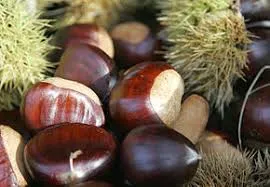-
 Afrikaans
Afrikaans -
 Albanian
Albanian -
 Amharic
Amharic -
 Arabic
Arabic -
 Armenian
Armenian -
 Azerbaijani
Azerbaijani -
 Basque
Basque -
 Belarusian
Belarusian -
 Bengali
Bengali -
 Bosnian
Bosnian -
 Bulgarian
Bulgarian -
 Catalan
Catalan -
 Cebuano
Cebuano -
 Corsican
Corsican -
 Croatian
Croatian -
 Czech
Czech -
 Danish
Danish -
 Dutch
Dutch -
 English
English -
 Esperanto
Esperanto -
 Estonian
Estonian -
 Finnish
Finnish -
 French
French -
 Frisian
Frisian -
 Galician
Galician -
 Georgian
Georgian -
 German
German -
 Greek
Greek -
 Gujarati
Gujarati -
 Haitian Creole
Haitian Creole -
 hausa
hausa -
 hawaiian
hawaiian -
 Hebrew
Hebrew -
 Hindi
Hindi -
 Miao
Miao -
 Hungarian
Hungarian -
 Icelandic
Icelandic -
 igbo
igbo -
 Indonesian
Indonesian -
 irish
irish -
 Italian
Italian -
 Japanese
Japanese -
 Javanese
Javanese -
 Kannada
Kannada -
 kazakh
kazakh -
 Khmer
Khmer -
 Rwandese
Rwandese -
 Korean
Korean -
 Kurdish
Kurdish -
 Kyrgyz
Kyrgyz -
 Lao
Lao -
 Latin
Latin -
 Latvian
Latvian -
 Lithuanian
Lithuanian -
 Luxembourgish
Luxembourgish -
 Macedonian
Macedonian -
 Malgashi
Malgashi -
 Malay
Malay -
 Malayalam
Malayalam -
 Maltese
Maltese -
 Maori
Maori -
 Marathi
Marathi -
 Mongolian
Mongolian -
 Myanmar
Myanmar -
 Nepali
Nepali -
 Norwegian
Norwegian -
 Norwegian
Norwegian -
 Occitan
Occitan -
 Pashto
Pashto -
 Persian
Persian -
 Polish
Polish -
 Portuguese
Portuguese -
 Punjabi
Punjabi -
 Romanian
Romanian -
 Russian
Russian -
 Samoan
Samoan -
 Scottish Gaelic
Scottish Gaelic -
 Serbian
Serbian -
 Sesotho
Sesotho -
 Shona
Shona -
 Sindhi
Sindhi -
 Sinhala
Sinhala -
 Slovak
Slovak -
 Slovenian
Slovenian -
 Somali
Somali -
 Spanish
Spanish -
 Sundanese
Sundanese -
 Swahili
Swahili -
 Swedish
Swedish -
 Tagalog
Tagalog -
 Tajik
Tajik -
 Tamil
Tamil -
 Tatar
Tatar -
 Telugu
Telugu -
 Thai
Thai -
 Turkish
Turkish -
 Turkmen
Turkmen -
 Ukrainian
Ukrainian -
 Urdu
Urdu -
 Uighur
Uighur -
 Uzbek
Uzbek -
 Vietnamese
Vietnamese -
 Welsh
Welsh -
 Bantu
Bantu -
 Yiddish
Yiddish -
 Yoruba
Yoruba -
 Zulu
Zulu
Oct . 04, 2024 23:20 Back to list
Different Varieties of Sunflower Seeds and Their Unique Characteristics
Types of Sunflower Seeds
Sunflower seeds are not only delicious snacks but also possess significant health benefits. They come in various types, each with unique characteristics, flavors, and uses. Here is an overview of the primary types of sunflower seeds, allowing you to explore the diversity of this nutritious food.
1. Oilseed Sunflower Seeds
Oilseed sunflower seeds are primarily cultivated for their oil content, making them a vital component in the cooking oil industry. These seeds are smaller and have a higher oil content (approximately 40-50%) compared to other types. The oil extracted from these seeds is high in unsaturated fats, particularly linoleic acid, which is good for heart health. Oilseed varieties include 'NuSun' and 'High Oleic' types, the latter being sought after for frying and baking due to its higher oxidative stability.
2. Non-Oilseed Sunflower Seeds
These sunflower seeds are grown mainly for edible consumption and have larger kernels. Non-oilseed types can be sub-divided into two categories confectionery and snack varieties.
- Confectionery Sunflower Seeds Known for their larger size and sweeter taste, these seeds are often used in snacks and have a broad consumer appeal. They are sold toasted, salted, or coated, making them a popular addition to trail mixes and granola bars. Varieties like ‘Mammoth’ and ‘Black Oil’ are well-known for their larger kernels and are often used in the production of flavored seeds.
types of sunflower seeds

- Snack Sunflower Seeds These seeds are typically roasted and seasoned, attracting snack lovers for their crunchy texture and savory flavor. They come in various flavors, including barbecue, ranch, and dill pickle. Brands often market snack sunflower seeds in convenient packaging, making them perfect for on-the-go munching.
3. Sprouting Sunflower Seeds
These seeds are specifically cultivated for sprouting, which allows for the growth of young sunflower plants. Sprouted sunflower seeds are rich in nutrients and enzymes, enhancing their digestibility and nutritional benefits. They can be added to salads, sandwiches, or smoothies, offering a fresh, crunchy texture and a slightly nutty flavor. Growing your own sprouts at home can be a fun and rewarding process, providing you access to fresh greens year-round.
4. Raw and Roasted Sunflower Seeds
Sunflower seeds can be categorized based on their processing method. Raw sunflower seeds retain all their natural oils and have a softer texture. These can be added to salads, baked goods, or consumed as a direct snack. Roasted sunflower seeds, on the other hand, have a crunchier consistency, making them a favorite among snack enthusiasts. Roasting enhances the flavor, and many varieties come salted or seasoned for additional taste.
Conclusion
Sunflower seeds are diverse, with several types catering to varying culinary and nutritional needs. From oilseed varieties crucial for cooking oil production to confectionery seeds favored for snacking, these tiny powerhouses pack a big nutritional punch. Rich in vitamins, minerals, and healthy fats, incorporating sunflower seeds into your diet can provide an array of health benefits. Whether you're munching on roasted seeds during a game or adding sprouted seeds to your salad, sunflower seeds are a versatile and delicious addition to any meal plan.
-
Premium Melon Seeds - Healthy Crunchy Snacks AI Optimized
NewsAug.01,2025
-
Premium Biscuits: Luxury Packaging & Exquisite Taste
NewsJul.31,2025
-
Bulk Sunflower Seeds Exporter | Buy Wholesale Today
NewsJul.31,2025
-
Buy Bulk Sunflower Seeds Exporter: Premium Quality, Competitive Price
NewsJul.30,2025
-
Premium Macadamia Nuts - Fresh, Crunchy & Healthy Snack Choice
NewsJul.30,2025
-
Premium Biscuits Packaging – Elegant, Durable & Customizable Solutions
NewsJul.29,2025
